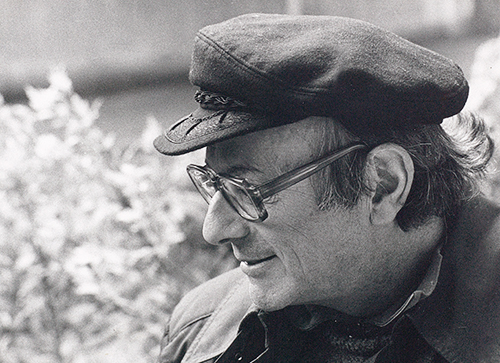“In 1961, after an illness, I started writing. Up to then I’d never thought of becoming a writer. […] The illness had to do with the big hollow organs in the belly […]. So for myself at least I could confirm that everything you invent comes from the gut.” (In: Spiele der Macht, 1971)
Before coming to public attention with the tales of doctors and patients contained in Husten (1965), written following an illness, Walter Vogt (1927−1988) had been a radiologist and family man living in Bern. He later ran a psychiatric practice in Muri near Bern.
The sufferings of the individual constrained by society’s norms and the blind raging of the powerful run like a thread throughout Vogt’s work, which employs a variety of stylistic approaches: the grotesque in Wüthrich (1966), a brilliant and biting satire on the medical profession and hospitals; the crime novel in Melancholie (1967); critique of science in Der Wiesbadener Kongress (1972); and political parody in Schizogorsk (1977).
Many of Vogt’s later works contain elements of autobiography. Themes such as his own drug addiction and bisexuality, which he opened up about in the 1980s, recur in everything from his novels to accounts of exotic travels and fantastical prose narratives.
During his years of experimenting with intoxicants, Vogt the narrator gives way to Vogt the diarist, with the autobiographical Vergessen und Erinnern (1980) and later Altern (1981) both falling within the diary genre.
Vogt, who wrote dramas as well as television and radio plays in addition to prose, was a leading author in the Swiss literary scene from the 1960s to the 1980s. He was a founder member of the Olten Group, serving as its president from 1976 to 1980, and a member of the Swiss-German PEN Centre.
His work earned him various accolades, including the City of Bern Prize for Literature, the Canton of Bern Grand Award for Literature, and the citizens’ award of the commune of Rauris.






